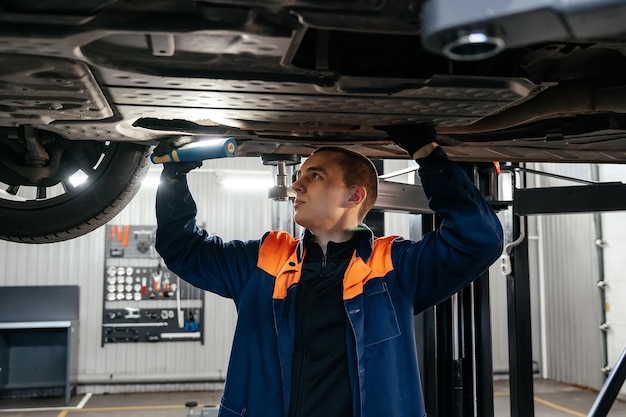If you’ve ever pressed the gas pedal and noticed your car’s engine revving up without your vehicle accelerating like it should, you may have experienced a transmission slip. It’s one of those issues drivers often hope will “fix itself,” but the truth is that transmission slipping is not something you can afford to ignore. In fact, if you live in Florida, the hot and humid climate makes this problem even more critical to address quickly.
The transmission is one of the most important and expensive systems in your vehicle. It directs the power from your engine to the wheels, allowing your car to move smoothly. When it starts slipping, it’s a sign that something inside is wearing out, failing, or overheating. Left unresolved, a slipping transmission can lead to major damage, costly repairs, or even a complete breakdown at the worst possible time.
Let’s take a closer look at what causes transmission slipping, why Florida’s heat makes the problem worse, the warning signs to watch out for, and why turning to a certified shop like MCS Mechanical in Orlando is your best move when trouble strikes.
What Does Transmission Slipping Mean?
Transmission slipping refers to a situation where your car doesn’t respond properly when you shift gears or accelerate. Instead of transferring power efficiently, the transmission seems to “slip” out of gear or delay its engagement. You might notice your engine revving unusually high, but the car isn’t moving as quickly as it should.
This condition is most common in automatic transmissions, though manual transmissions can also experience their own forms of slipping or clutch-related problems.
Common Causes of Transmission Slipping
There isn’t just one reason a transmission might slip. Several underlying issues can trigger it, and many of them are tied to maintenance habits and heat exposure. Some of the most common causes include:
- Low or burnt transmission fluid: Transmission fluid is responsible for lubrication, cooling, and hydraulic pressure. If the fluid level is low or the fluid is degraded, your transmission cannot function properly.
- Worn-out clutch plates or bands: Inside your transmission are components that grip and release to shift gears. Over time, these wear down and lose effectiveness.
- Solenoid problems: The solenoids control the flow of fluid in an automatic transmission. A faulty solenoid can disrupt gear shifts.
- Damaged gears: Worn or broken gears can cause slipping, grinding, or delayed engagement.
- Overheating: Heat breaks down transmission fluid and stresses the system, making slipping more likely.
Why Florida Heat Makes It Worse
Living in Florida has many perks, but when it comes to your car, the climate can be punishing. Orlando drivers face high temperatures, humidity, and heavy stop-and-go traffic, all of which can worsen transmission problems.
- Higher fluid breakdown: Transmission fluid is designed to keep components cool and lubricated. In extreme heat, fluid deteriorates faster, losing its protective properties.
- Added strain in traffic: Stop-and-go driving on hot pavement generates more heat inside your transmission. This accelerates wear and increases the risk of slipping.
- Air conditioning use: Running your A/C full blast in Florida summers increases the overall workload on your engine and transmission.
- Frequent short trips: If you’re making lots of local trips, your transmission might not have enough time to cool between drives, compounding the stress.
Ignoring a slipping transmission in these conditions is like ignoring dehydration on a summer day — the damage builds up quickly, and the consequences can be severe.
Warning Signs of a Slipping Transmission
The earlier you recognize the symptoms of transmission slipping, the better chance you have of avoiding a complete transmission rebuild or replacement. Some of the most common warning signs include:
- Delayed acceleration: Your car takes longer to pick up speed after pressing the gas.
- Unusual engine revving: The engine sounds louder or races without a matching increase in speed.
- Difficulty changing gears: The vehicle hesitates, jerks, or refuses to shift smoothly.
- Burning smell: Overheated transmission fluid can give off a burnt odor.
- Warning lights: Your dashboard’s check engine or transmission light may turn on.
- Shaking or slipping feeling: It can feel like the car briefly “lets go” of its gear.
Even if these symptoms only happen occasionally, they are not normal and should be checked out as soon as possible.
Why You Shouldn’t Delay Repairs
When drivers notice slipping, they often hope it’s just a minor issue. Unfortunately, small transmission problems almost never stay small. The longer you wait, the more damage occurs.
- Increased wear: A slipping transmission grinds and stresses internal components.
- Fluid contamination: Overheating can burn fluid and circulate debris through the system.
- Expensive repairs: What might have started as a fluid service can escalate into the need for a complete rebuild.
- Breakdowns: You don’t want to lose power on I-4 during rush hour or while driving to the coast for the weekend.
Addressing the issue promptly is always more cost-effective than waiting until your vehicle can’t move at all.
Transmission Slipping in Orlando: What to Do
If you suspect your transmission is slipping, here’s what you should do:
- Check your fluid: Look at the level and condition of your transmission fluid. If it’s low, burnt, or dark, that’s a clear sign of trouble.
- Pay attention to patterns: Notice if slipping happens when the car is hot, under load, or during certain gears. This can help technicians diagnose the issue.
- Avoid aggressive driving: Until you can get it inspected, drive gently to reduce stress on the transmission.
- Schedule a professional inspection: The most important step is having a certified mechanic evaluate your transmission before the damage gets worse.
Why MCS Mechanical is the Right Choice in Orlando
When it comes to transmission problems, you need expertise you can trust. At MCS Mechanical, we specialize in diagnosing and repairing transmissions, from minor fluid services to complete rebuilds and replacements. Here’s why Orlando drivers rely on us:
- Certified and trusted: We are certified by Technet and backed by a 24-month warranty on parts and labor. That includes towing reimbursement with proof of purchase for added peace of mind.
- Transmission warranty work: We’re an authorized repair facility for top warranty providers including AGWS, Proguard, NVP, and Smart Autocare. That means we can handle warranty claims and approved repairs efficiently.
- Financing available: With Synchrony and Snap Finance, you don’t have to put off necessary repairs due to budget concerns. Fix now and pay later.
- Fleet-approved expertise: Trusted by major fleets like Enterprise and Element, our shop handles both personal vehicles and commercial fleets with precision and reliability.
- Multilingual service: Our team is ready to help in English, Spanish, or Portuguese.
In addition to transmission services, we provide complete auto repair and maintenance, including diagnostics, electrical system repairs, and routine inspections.
Stay Ahead of Transmission Trouble
In Florida’s relentless heat, transmission slipping is not an issue you can afford to ignore. Small warning signs can quickly lead to major failures if left unchecked. By recognizing the symptoms early, understanding the role of heat in accelerating damage, and bringing your vehicle to a trusted repair shop, you can save yourself stress, money, and time.
If you’ve noticed delayed shifting, unusual revving, or other signs of transmission slipping, don’t wait until you’re stranded on the side of the road. Schedule your service with MCS Mechanical in Orlando today. Our certified technicians, warranty-backed repairs, and flexible financing options mean you’ll get expert care without the hassle.
Call us now or book your appointment online.


